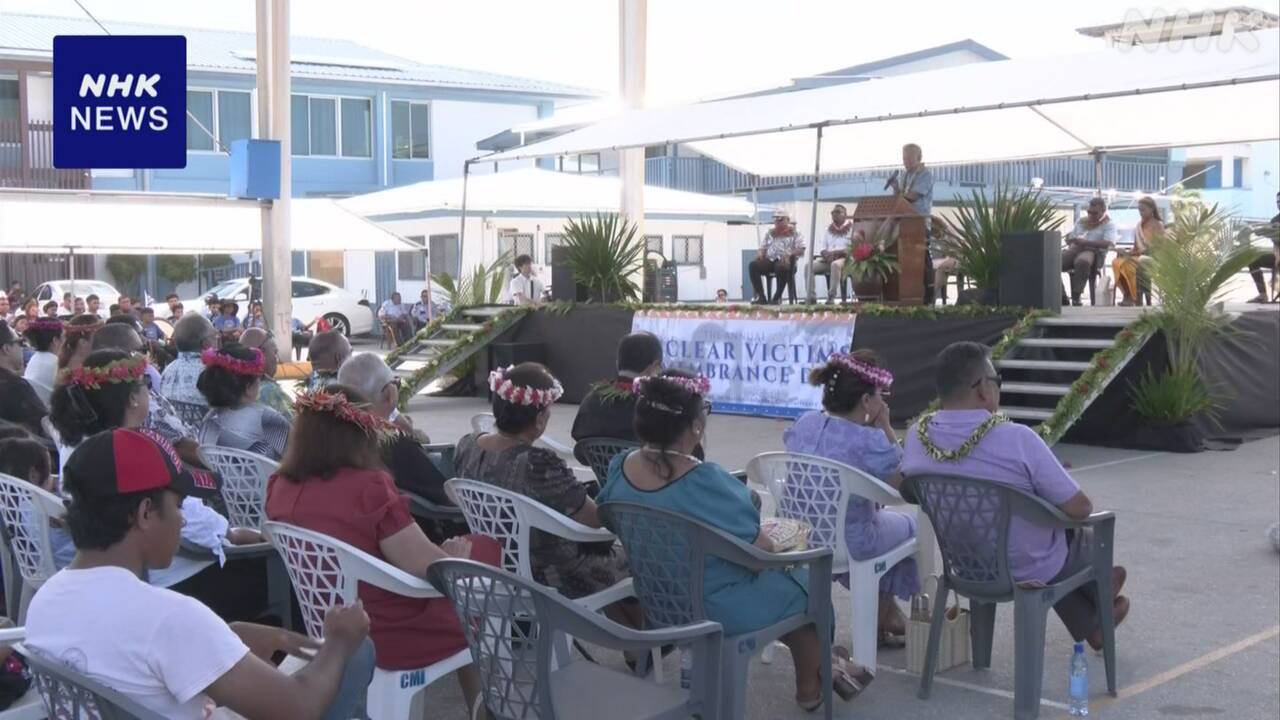On the 1st, 70 years since the crew of the Japanese tuna fishing boat Daigo Fukuryu Maru were exposed to radiation during a hydrogen bomb test conducted by the United States at Bikini Atoll in the Marshall Islands in the Pacific Ocean, a ceremony was held at the site, and a ceremony was held at the site. Many people also participated.
When the United States conducted a hydrogen bomb test on Bikini Atoll in the Pacific Ocean on March 1, 1954, so-called "ashes of death" containing radioactive materials rained down over a wide area, exposing many islanders and tuna fishing boats in Yaizu City, Shizuoka Prefecture. Many Japanese fishing boats sailing nearby were also exposed to radiation, including the Daigo Fukuryu Maru.
On the 1st, marking the 70th anniversary of the test, a ceremony and parade was held in Majuro, the capital of the Marshall Islands, with many Japanese participants, including the families of the fishing boat crew members from Kochi Prefecture, calling for the abolition of nuclear weapons. .
At the ceremony, some people were seen wiping away tears when a representative of the people who were forcibly relocated from Bikini Atoll gave a speech saying, ``We must never forget this sacrifice and suffering.''
In addition, President Heine of the Marshall Islands stated, ``Moving forward means continuing to face the damage done to people and the environment in the past, present, and future,'' and expressed the idea of continuing negotiations to seek compensation from the U.S. government. I showed it.
By 1958, the United States had conducted 67 nuclear tests in the Marshall Islands, and the islanders are suffering from health damage due to radiation exposure, and the forcibly relocated residents are still unable to return to their original islands and are seeking compensation and assistance. I am.
Setsuko Shimomoto (73) from Kochi Prefecture, who attended the ceremony for the first time and whose father, who was a fishing boat crew member, died of cancer, said, ``I'm glad I was able to participate.'' I felt angry about the nuclear tests, so I wanted to share my feelings with Japan. I want to share it with people," he said.

